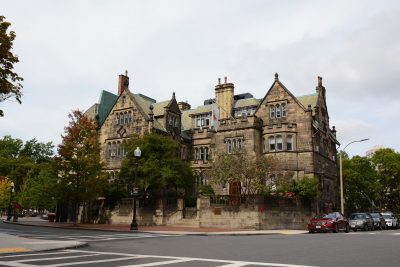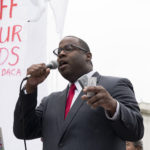
The Boston University Board of Trustees welcomed six new members and a new board chair this school year to fill the vacant positions left by those who had finished their terms.
Kenneth Feld, a 1970 graduate of the BU School of Management, succeeded Robert Konx as the chairman of the Board of Trustees. He now also chairs the Campaign for Boston University, which aims to raise $1.5 billion by 2019.
“To be elected chairman of the board — a board of 40 people — was wonderful,” Feld told The Daily Free Press. “I have a great affinity for the university. It’s a wonderful opportunity, and I hope that over the next several years we can keep the university moving forward.”
Feld said the board should unify the university and enable the administration to achieve the university’s highest potential.
“What’s important is that there is a strong partnership between the board and myself with President Robert Brown and the senior staff at the university,” Feld said. “Hopefully we are efficient, and we all act as a catalyst for the best ideas to come forward.”
Five of six new board members were chosen on the ground of recommendations given by the university administration as well as by other trustees, which is the board’s traditional method, Riley wrote in an email.
While William Bloom, Ahmass Fakahany, Kenneth Slater, Malek Sukkar and Ruth Moorman started their terms on board this September, J. Robb Dixon started his term in June, when he became chair of the Faculty Council, according to BU spokesperson Colin Riley.
Dixon, a professor in the Questrom School of Business, said he has already officially been to two trustee meetings, and is looking forward to working with the team.
“[Members of the board] don’t necessarily agree about everything,” Dixon said. “But they have a very respectful way to talk to one another and figure out their differences.”
Dixon said he is prepared to represent the faculty at BU and serve as the liaison between the staff and board during policy discussions.
“I can help [the trustees] understand where the majority of faculty are on particular issues,” Dixon said. “Although, as I’ve long ago learned, there’s very seldom a single point of view from the faculty perspective.”
As a former member of the Advisory Committee on Socially Responsible Investing, Dixon said he was pleased that the Board of Trustees accepted the Climate Action Plan, and he hopes to tackle the subject of environmental sustainability with the board.
“I am very hopeful that we can put together a stronger set of commitments for the university to help it reduce its release of carbon dioxide and to do research that will have impact beyond the campus,” Dixon said.
As a business professor, Dixon said he now has a chance to help the trustees understand how climate change affects business and how business, in turn, affects climate change.
Several students said they wish students could have a stronger influence in the Board of Trustees, and the board should be more transparent with its agenda.
Sara Mack, a freshman in the College of Communication, said she would like to see the new board continue to raise awareness of sexual assault on campus.
“I was impressed by the focus on these subjects at orientation,” she said. “But it is imperative to take actions while crime actually takes place.”
Chance Jackson, a sophomore in the College of Engineering, said most students are not aware of what is happening within the Board of Trustees, and the board is responsible for this lack of communication.
“[It] is an issue of transparency,” Jackson said. “If they’re supposed to be representing the university’s best interests, then they’re supposed to be representing my best interests as well. If I don’t know what’s going on, then there’s an issue.”
Jonathan Cook, an ENG freshman, said although he was not aware of the change in the Board of Trustees, students should pay close attention to where the university is heading.
“[Students] should have some awareness of what’s going on in the Board of Trustees,” Cook said. “[Their] decisions affect the school.”













